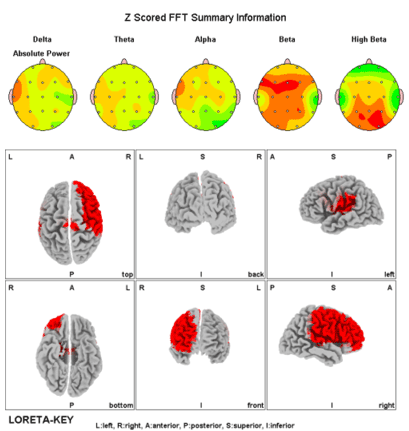There are various types of slumber disorders, including sleeplessness, sleep apnea, and restless leg syndrome. Sleeplessness is defined by difficulty going or staying asleep, while slumber apnea entails interruptions in breathing during sleep. Unsettled leg syndrome causes uncomfortable sensations in the legs, resulting to an irresistible urge to move them. Each of these disorders can disturb the natural sleep cycle, which consists of various stages, including light sleep, deep sleep, and REM (rapid eye movement) sleep. Each stage plays a vital role in maintaining overall cognitive health and performance.
When sleep disorders disturb with these stages, brainwave activity can become erratic. For instance, during deep sleep, the brain generates gentle delta waves, which are essential for bodily restoration and recall consolidation. If a person experiences repeated awakenings or does not reach deep sleep, the generation of these delta waves is diminished. This can result to difficulties in learning new knowledge and holding memories. Additionally, REM sleep, which is linked with fantasizing and affective processing, is also affected. Disruptions in REM sleep can lead to problems with affective regulation and inventiveness.
The impact of sleep disorders on cognitive function is significant. Research has shown that individuals with sleep disorders often experience difficulties with focus and concentration. This can affect their capability at school or work, making it difficult to complete tasks or engage in discussions. Furthermore, chronic sleep deprivation can result to mood changes, heightened stress, and even anxiety or depression. These cognitive and affective challenges can create a vicious cycle, where inadequate sleep results to cognitive difficulties, which in turn can result to more slumber problems.
Addressing slumber disorders is essential for improving brainwave activity and mental function. Treatment options may encompass habitual changes, such as creating a regular slumber schedule, creating a cozy slumber environment, and practicing relaxation techniques. In some cases, medical intervention may be required, such as using a CPAP machine for sleep apnea or medication for insomnia. By valuing slumber and pursuing appropriate care, individuals can improve their overall cognitive abilities and boost their quality of life. Understanding the connection between slumber disorders, neural wave learn about this here now activity, and mental function is an essential step toward better health and wellness.
